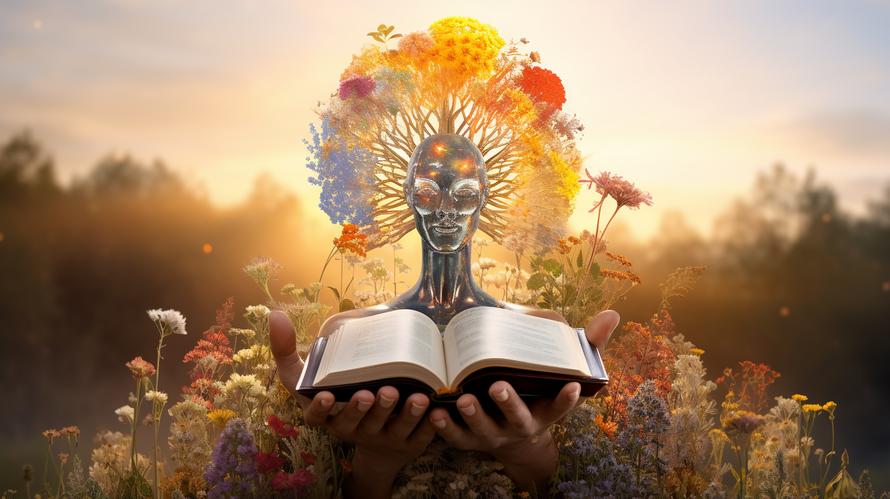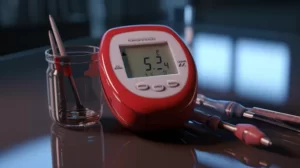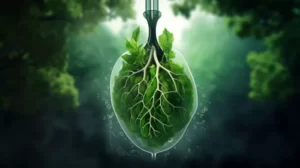In the bustling metropolis of Tokyo, Japan, doctors aren’t just scribbling prescriptions for the latest pharmaceutical concoctions. They’re taking a page from the past, breathing life back into healing traditions that have rooted themselves deeply in human history. Imagine receiving a doctor’s note that reads less like a chemist’s shopping list and more like a gardener’s planting guide—where herbs, acupuncture, and mind-body practices flourish. Welcome to the modern renaissance of alternative therapies.
With the global health landscape evolving, medical practitioners are increasingly recognizing the need to bridge the gap between conventional Western medicine and millennia-old healing techniques. From acupuncture’s needlepoint precision to the adaptogenic wonders of ancient herbs, doctors are crafting a new guide—a codex that respects the potency and potential of treatments once relegated to the outskirts of modern medicine.
One fascinating aspect of this shift lies in the very fabric of our DNA. As genetic research unfurls the secrets of our biological blueprints, experts are discovering that personalized medicine isn’t just a buzzword; it’s a compass for tailor-fitting treatments to each individual’s unique genetic makeup. This scientific symphony plays beautifully into the hands of alternative therapies, with modalities like naturopathy and Ayurveda long championing the individualized approach to health.
Effective healthcare is not a one-size-fits-all garment but a bespoke suit, tailored to the minutiae of our physical and spiritual selves. As Harvard Medical School opens its doors wider to integrative medicine courses and John Hopkins Hospital incorporates mindfulness meditation for patient improvement, there’s a clear acknowledgment: alternative therapies have weight in gold.
Let’s uncover the ancient treasures that doctors are dusting off and the scientific jewels they’re setting in a new crown of comprehensive care.
The Root of the Matter: Herbal Medicines
Herbalism is far from a modern concept. Yet, amidst the sheer scale of the pharmaceutical industry, these natural remedies are making a potent comeback. Adaptogens, a class of herbs including the likes of Ashwagandha and Rhodiola Rosea, are drawing attention for their stress-combatting abilities. Clinical trials are illuminating how these plants work to balance the adrenal system and aid in the body’s response to stress and fatigue.
Doctors are not simply handing out herbs like candy, however. Prescription requires precision. A patient experiencing chronic stress might find a doctor prescribing a regimen of Ashwagandha, backed by studies indicating its efficacy in reducing cortisol levels. Meanwhile, another patient seeking cognitive enhancements could leave with a script for Ginkgo Biloba, hailed for improving blood flow to the brain.
A Prick of Prevention: Acupuncture and Eastern Medicine
Further East, the ancient practice of acupuncture, a staple of traditional Chinese medicine, is emerging from the shadows of skepticism. Amidst sterile clinics and hospitals, you can now find practitioners strategically inserting fine needles into the skin. It’s not alchemy; it’s science. Clinical studies point to acupuncture’s effectiveness in treating chronic pain, migraines, and even depression by stimulating the body’s natural painkillers and altering brain chemistry.
Doctors are learning to prescribe this therapy precisely, considering the individual’s needs and complaints. They’re incorporating it into broader treatment plans, often in conjunction with more conventional methods, to create a comprehensive approach to pain and symptom management.
The Mind-Body Connection: Meditation and Yoga
Turn your gaze westward, and you’ll witness the resurgence of meditation and yoga, no longer confined to the realms of spiritual enthusiasts but championed in the halls of science. Today’s physicians are prescribing these practices to combat the high-pressure cooker of modern life. A study by the National Institutes of Health found that regular meditation could reduce the risk of heart disease, while yoga is praised for its spine-aligning, muscle-strengthening, and mental-decluttering prowess.
Acknowledging the interconnectedness of mental and physical health, doctors are increasingly advocating for these practices to be included in daily routines. A five-minute morning meditation might be prescribed to lower anxiety, while evening yoga could be the antidote for a patient struggling with insomnia.
Natural Elements: Aromatherapy and Essential Oils
A whiff of lavender isn’t just for perfumeries or picturesque French fields. Aromatherapy, with its arsenal of essential oils, is finding its way into medical scripts. Although often met with raised eyebrows, research is validating the therapeutic claims surrounding these fragrant extracts. Lavender oil, for instance, is backed by studies for its sedative properties, aiding in sleep and relaxation.
A doctor might suggest a few drops of peppermint oil for a patient with digestive issues, leveraging its antispasmodic properties, or eucalyptus oil for someone with respiratory complications, drawing on its decongestant abilities.
Integrating New Wisdom with Old
So, what does this all mean for you, the patient, the seeker of health and vitality? Firstly, it marks an age where your care can be as diverse as the ailments that ail you. Secondly, it signals an opportunity to engage with your healthcare providers about options that might have seemed unconventional a mere decade ago. It’s important to remember that while alternative therapies offer exciting possibilities, they are not blanket substitutes for conventional medical treatments. They shine brightest as complementary modalities within a well-rounded healthcare plan.
Ultimately, the emerging guide for prescribing alternative therapies empowers both doctor and patient. For every individual who finds solace in the scent of chamomile or relief in the twist of a yoga pose, there lies the palpable truth that alternative therapies are not just whispers of the past but robust echoes resonating into the future of medical practice.
Embrace the dialogue with your healthcare provider about incorporating alternative therapies alongside conventional methods. Be open to exploring the ancient paths woven with modern insights. After all, the tapestry of healthcare is being rewoven, and it is rich with possibilities that cater to the whole person—body, mind, and spirit. With meticulous research and a collaborative spirit, we step towards an era where health is not just managed but optimized.



